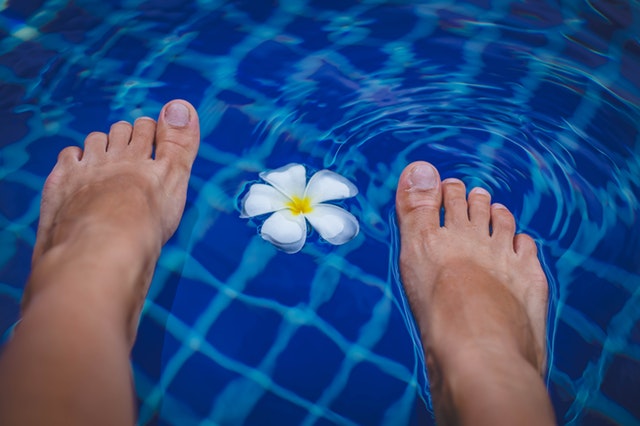
(Source: Pexels)
Diabetes is one of the most common diseases in the western world nowadays. As we put more weight on the prevalence of this illness has become a lot more common. Feet are one of the most impacted areas due to circulation issues and this post looks at how to treat them well.
Are you looking to improve your foot health – something that is very much a necessity if you have diabetes? Well, then these tips are here to help you do just that and care for your feet in the right manner.
1. Take Proper Care of Your Diabetes
To ensure that your blood sugar level stays within a good range, it is always advisable to work with your health care team.
2. Always Wear Shoes and Socks
It is always important to avoid walking barefoot. A better idea would be to always wear comfortable shoes that not only fit well but also protect the feet. Always feel the inside of your shoes before you actually put them on every time to be sure that there aren’t any objects inside and that the lining is smooth. You should also think about buying specialized shoes from an orthotic shop.
3. Protect Feet from Both Cold and Hot
It is always advisable to wear shoes when walking on hot pavements or even at the beach. If your feet get cold at night, you can wear socks.
4. Check Your Feet Daily
Check your bare feet daily for blisters, swelling, red spots, and cuts. You should also check the bottom of your feet using a mirror or if you have trouble seeing, ask a family member for help.
5. Wash Your Feet Daily
Wash your feet every day in warm as opposed to hot water. You should also not forget to dry your feet properly especially between the toes.
6. Keep Skin Smooth and Soft
To keep your skin smooth and soft, rub a thin layer of skin lotion on the bottoms and tops of your feet. However, you should make sure that the lotion does not get in between the toes.
7. Gently Smooth Calluses and Corns
You should try to smooth calluses and corns using a pumice stone.
8. Trim Toenails Every Week or when Required
You should trim toenails straight across and use a nail file or emery board to file the edges.
9. Keep Blood Flowing to the Feet
Always put the feet up when you sit. Wiggle the toes and move the ankles up and down for 5 minutes, twice or thrice every day. Avoid crossing your legs for extended periods of time. You should also avoid smoking.
10. Be More Active
Work with your doctor to come up with a personalized physical activity program.
11. Check with the Doctor
Have your bare feet checked out by a doctor and find out whether you are likely to suffer from serious foot problems. Keep in mind the fact that you might not necessarily feel the pain of an injury. If a sore, blister, or bruise on your foot fails to start healing after one day, you need to call the doctor without any delay.
12. Get Started Immediately
Start taking proper care of the feet today. Set a time every day to check the feet.
Having diabetes means you’re at much greater risk of developing foot problems.
This is because raised blood glucose, also known as blood sugar, can damage the sensation in your feet.
It can also affect your circulation, which can mean blood can’t flow around your body properly, especially to your feet. Without a good blood supply, you may have problems with cuts and sores healing. You may also get cramps and pain in your legs or feet. These are just some of the signs of a serious foot problem.
If you don’t get these problems treated, they could lead to foot ulcers, infections and, at worst, amputations. Most foot problems can be prevented with good, regular foot care. So you need to know how to look after your feet at home. And make sure you get a quality foot check from a healthcare professional at least once a year.
By taking care of your feet in the right manner you stand a far better chance of ensuring that you will be in good health for the long term and remain mobile. Use the tips above to ensure that this is the case and that your feet are healthy for the long term.
About The Author:
Peter Pani has seldom ever had the need for hard-soled shoes as he has always managed to float rather than walk. However, when he does invest in shoes he always uses orthotic shoes and has had years of experience in choosing and picking as a consumer



![[Infographic] Effective Tips for Tightening Loose Skin and Improving Elasticity Tightening Loose Skin](https://www.safeandhealthylife.com/wp-content/uploads/2023/10/Tightening-Loose-Skin-150x150.webp)
![How To Train Your New Puppy [6 Effective Tips] How To Train Your New Puppy](https://www.safeandhealthylife.com/wp-content/uploads/2023/09/How-To-Train-Your-New-Puppy-150x150.png)